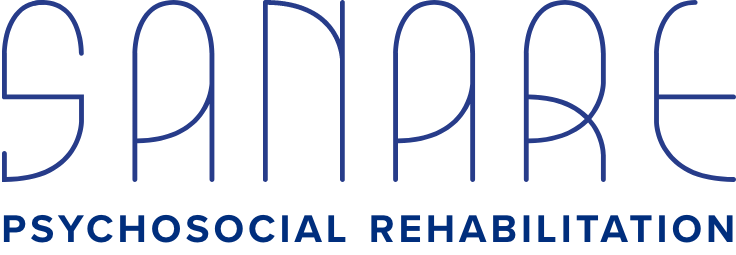
Mood Disorders
Definition
Mood disorders are mental health conditions that affect a person's emotional state, leading to significant disruptions in daily life. These disorders can manifest as persistent feelings of sadness, hopelessness, or extreme highs and lows. They go beyond the normal fluctuations in mood that everyone experiences from time to time.
Individuals with mood disorders may find it challenging to regulate their emotions appropriately, impacting their relationships, work performance, and overall quality of life. It's crucial to recognize the symptoms early on and seek proper treatment to manage these conditions effectively.
Types of Mood Disorders:
Major Depressive Disorder (MDD): persistent feelings of sadness and loss of interest in daily activities
Bipolar Disorder: extreme mood swings from mania to depression
Cyclothymic Disorder: periods of hypomanic symptoms and mild depression
Seasonal Affective Disorder (SAD): changing seasons, typically winter months with reduced sunlight exposure correlate with depressive symptoms
Premenstrual Dysphoric Disorder (PMDD): severe mood changes, irritability, and sadness prior to menstruation
Signs and symptoms to look out for:
Persistent feelings of sadness
Hopelessness and helplessness
Thoughts of suicide or death
Irritability
Changes in sleep patters: insomnia or oversleeping
Disruptions in appetite or body weight
Difficulty concentrating
Difficulty making decisions
Poor memory
Fatigue
Headaches
Digestive Issues
Causes and Risk Factors:
Genetic Factors:
Genetic risk factors play a significant role in the development of mood disorders. Individuals with a family history of mood disorders are at a higher risk of experiencing similar conditions themselves.
Research suggests that certain genes may predispose individuals to conditions like depression or bipolar disorder. These genetic variations can influence how the brain regulates mood, stress response, and emotional processing.
Environmental Factors:
Environmental risk factors play a significant role in the development of mood disorders. Exposure to chronic stressors, such as financial difficulties, work-related pressure, or relationship problems, can contribute to the onset of conditions like depression and bipolar disorder.
Living in an environment with limited social support or experiencing trauma from natural disasters can also increase the likelihood of developing mood disorders. Additionally, exposure to toxins and pollutants in the air or water supply may impact brain function and exacerbate symptoms.
Furthermore, lack of access to healthcare services or mental health resources due to geographical location or socioeconomic status can hinder individuals from receiving timely interventions for their mood disorders. The quality of one's surroundings and community support systems can profoundly influence mental well-being.
Structural And Functional Brain Factors:
Structural changes in the brain, such as abnormalities in certain areas like the amygdala or prefrontal cortex, can contribute to mood disorders. These alterations may affect emotional processing and regulation, leading to symptoms of depression or bipolar disorder.
On the other hand, functional differences in brain activity patterns can also influence mood disorders. Dysregulation in neurotransmitters like serotonin or dopamine can disrupt communication between brain regions responsible for emotions, impacting our overall mental well-being.
How Anxiety Disorders Can Affect Your Life
Early Life and Education
For children with mood disorders, concentrating in school may become challenging due to fluctuating emotions and energy levels. This can lead to difficulties in focusing on tasks, completing assignments, and participating in classroom activities.
Moreover, mood disorders can also affect interpersonal relationships with peers and teachers. Children may struggle with social interactions, experience feelings of isolation or irritability, which can further hinder their learning experience.
In terms of education, untreated mood disorders can result in academic underachievement or even school avoidance. These challenges could potentially have long-term consequences on the child's educational attainment and future opportunities.
Professional Challenges:
Individuals with mood disorders may struggle with motivation and find it difficult to engage in tasks that were once enjoyable or fulfilling. This lack of interest in work-related activities can lead to feelings of inadequacy and decreased job satisfaction.
Managing responsibilities becomes increasingly demanding when grappling with the highs and lows of bipolar disorder or depression. Fatigue, irritability, and difficulty making decisions are common symptoms that can interfere with daily work duties.
Moreover, navigating workplace relationships may become strained due to mood fluctuations affecting communication skills and teamwork abilities. Colleagues might not understand the challenges faced by someone dealing with a mood disorder, leading to feelings of isolation and stigma.
Home and Social Life:
The constant fluctuations in mood can strain relationships with family members and friends, leading to misunderstandings and feelings of isolation. Simple tasks like maintaining a tidy home or engaging in social activities may feel overwhelming when dealing with the symptoms of bipolar disorder or depression.
Treatment Options:
Medication
When it comes to managing mood disorders such as bipolar disorder or depression, medication can play a crucial role in helping individuals find stability and relief from symptoms. There are various types of medications that may be prescribed by healthcare professionals based on the specific diagnosis and needs of the individual.
Psychotherapy
Psychotherapy is a valuable treatment option for individuals facing mood disorders like bipolar disorder and depression. This form of therapy involves talking to a trained mental health professional who can help you understand your thoughts, emotions, and behaviors. Through various techniques such as cognitive-behavioral therapy (CBT) or dialectical behavior therapy (DBT), psychotherapy aims to identify and address underlying issues contributing to your mood disorder.
In psychotherapy sessions, you will have the opportunity to explore past experiences, develop coping skills, and set achievable goals for managing your symptoms. The therapist creates a safe space for you to express yourself without judgment while offering guidance and support throughout the process.
By working with a therapist in psychotherapy, individuals can gain insight into their patterns of thinking and behavior that may be exacerbating their mood disorder symptoms. Through ongoing sessions, clients can learn healthy ways to cope with stressors, regulate emotions effectively, and improve overall well-being.
Lifestyle and Supportive Therapies
Incorporating regular exercise into your routine can help boost endorphins and reduce symptoms of mood disorders. Whether it's going for a walk, practicing yoga, or hitting the gym, physical activity has been shown to have positive effects on mental health.
In addition to exercise, maintaining a balanced diet rich in nutrients can also support your mental health. Eating foods high in omega-3 fatty acids, fruits, vegetables, and whole grains can contribute to better mood regulation. Adequate sleep is another essential aspect of self-care when dealing with mood disorders; establishing a consistent bedtime routine can promote restful sleep patterns.
Engaging in relaxation techniques such as meditation, deep breathing exercises, or mindfulness practices can help alleviate stress and anxiety associated with mood disorders. Building a strong support system comprised of friends, family members, or joining support groups can provide emotional encouragement during challenging times.
Tips and Strategies for Families:
Understanding and Empathy: It's crucial to educate yourselves about the condition, communicate openly, and provide a supportive environment.
Support Treatment: Encourage your loved one to adhere to their treatment plan, attend therapy sessions, and take medications as prescribed.
Routine at Home: Creating a routine at home can help manage symptoms. Engage in activities together that promote relaxation and stress reduction like exercise or mindfulness practices. Encourage healthy habits such as proper nutrition, regular sleep patterns, and avoiding substances that can exacerbate symptoms.
Support groups: Support Groups for both the individual with the mood disorder and their family members can be incredibly beneficial. They provide a space to share experiences, gain insights from others facing similar challenges, and offer emotional support.
Remember that managing a mood disorder is an ongoing process that requires patience and understanding. By working together as a family unit with love and compassion, you can navigate through the ups and downs of mood disorders effectively.
Discovering Hope in Sanare Amidst the Process of Healing
In conclusion, understanding and managing thought disorders is a journey marked by challenges, but also by significant opportunities for healing and growth. For those affected and their loved ones, it's important to remember:
Hope is Essential: Despite the complexities of thought disorders, progress and recovery are possible with the right support and treatment.
Continuous Learning and Adaptation: Staying informed and adaptable in your approach can make a significant difference in managing these conditions.
Seek Professional Support: Engage with healthcare professionals and utilize resources for comprehensive care and support.
Community and Family are Key: The role of community and family cannot be overstated. Their support is fundamental to the recovery process.
At Sanare Psychosocial Rehabilitation, we understand the intricacies of mood disorders and are committed to providing compassionate, comprehensive care. If you or a loved one is struggling with a mood disorder, we encourage you to reach out. Together, we can embark on a path toward better mental health and well-being.
